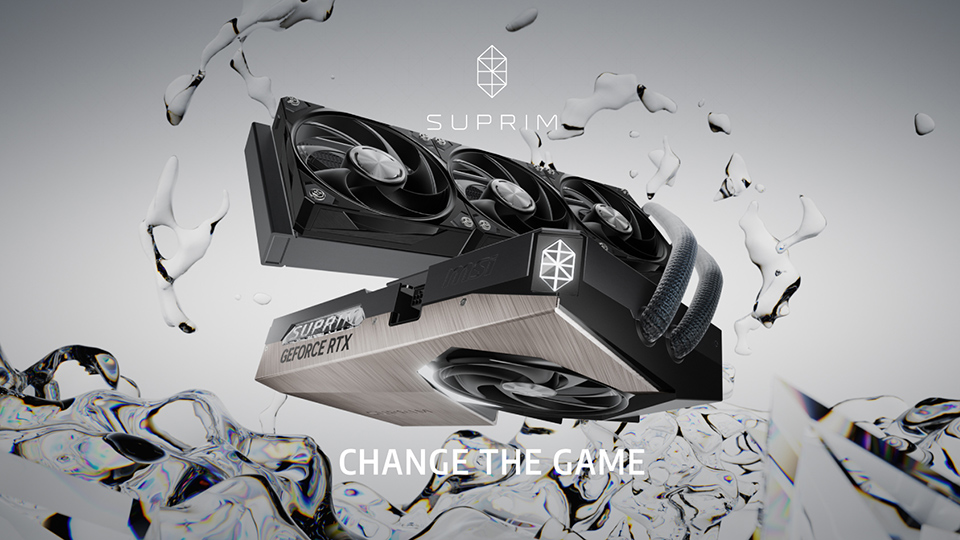RTX 5090 GPUs aren't being recalled for being a fire hazard after all — Nvidia and MSI refute accusations
MSI assures customers its products are free from such risks.

Yesterday, a Dutch retailer falsely reported a recall of MSI's RTX 5090 GPUs, particularly the MSI RTX 5090 Suprim. MSI and Nvidia have categorically refuted these accusations, reassuring customers their products pose no such risks. The cause of this fumble was a reported communication error. While the retailer eventually retracted their statement, MSI may pursue legal action. You can read MSI's press release below:
"We had the unpleasant surprise of learning on 03/06/2025, through an article on Kitguru website Link, that a Dutch retailer—UW GAME SPECIALIST—allegedly informed a customer that they were unable to fulfill their order because 5 GeForce RTX 5090 32G Suprim SOC from our brand had supposedly been recalled due to a fire hazard.
With this statement, we would like to make it clear that these allegations are absolutely false, that no recall program is in progress, and that our products present no such risk.
Furthermore, we would like to specify that this retailer is not one of MSI's partners, and we do not work with them.
We reserve the right to initiate legal proceedings against those responsible for these highly defamatory allegations, which harm our brand's reputation, as well as against anyone contributing to their dissemination."
We contacted Nvidia for a comment on the situation, and a representative said, "No recall and this was a very odd interaction, these articles [from KitGuru] are now updated with info from the retailer."
The story stems from a slight misunderstanding between the retailer, "Your Game Specialist," and one of their customers, Ben, who spent nearly $3,700 on an RTX 5090 GPU from MSI, per KitGuru. Long story short, a store representative told Ben the order couldn't be fulfilled, claiming that Nvidia has recalled certain RTX 5090 graphics cards due to a "potential fire hazard".
Get Tom's Hardware's best news and in-depth reviews, straight to your inbox.
That's a weighty accusation because a recall admits to product defects, a situation no company desires. Even Intel didn't recall its troublesome Raptor Lake CPUs since that'd put a serious dent in its bottom line. The impact of this false report might extend to defamation claims, which could open the door for potential lawsuits from MSI or Nvidia. MSI has distanced itself from the store, directing customers to one of its authorized resellers.
With the bad rep Nvidia's Blackwell GPUs have been getting, it's easy to get carried away with rumors. Nonetheless, user reports have shown uneven current distribution in RTX 5090 GPUs, leading to cable temperatures near 150 degrees Celsius. This will surely melt a connector or two if used for prolonged sessions. Then we have the apparent assumptions that the design limitations with Blackwell GPUs render them unable to balance load across each power connector pin.
The RTX 50-series launch might be one of the most burdensome in Nvidia's history. Even after two months, you must sell an arm and a leg to get an RTX 5090. Assuming you manage to secure one, there's still the risk of missing ROPs, which is the cause of a production defect that is shown to cut performance by up to 11%. Blackwell also drops support for 32-bit CUDA, impacting legacy OpenCL code and games that use older PhysX implementations.
AMD's Radeon RX 9070 series GPUs are in full swing, though stock has been limited at launch. There aren't as many MSRP models as we expected, but inventory should catch up with demand sooner or later.

Hassam Nasir is a die-hard hardware enthusiast with years of experience as a tech editor and writer, focusing on detailed CPU comparisons and general hardware news. When he’s not working, you’ll find him bending tubes for his ever-evolving custom water-loop gaming rig or benchmarking the latest CPUs and GPUs just for fun.
-
VizzieTheViz I’m sure they’re right they won’t be recalled but if they’d made a proper product people wouldn’t be so ready to believe this rumor.Reply
With all the melting wires and connectors it’s no wonder this rumor took off like it did. -
hollywoodrose This is an old article, but given everything we’ve learned in the past few months I figured I’d add my two cents. The fact that there is no recall doesn’t mean they’re not a fire hazard. It just means they’re not acknowledging that there is a problem. And suing over this issue could actually work against Nvidia and MSI because there would then be grounds to prove that they are a hazard.Reply
That means bringing up the removal of two thirds of the shunt resistors (from 3 down to 1). Three was already insufficient in the previous gen 4090. It would mean bringing up the lack of power regulation, when a component that costs $5 would ensure that the right amount of power would flow to each wire in the cable. Then there was the removal of hot spot monitors. The entire GPU was designed to permit massive power overloads while being completely unable to recognize them when they occur, much less stop them. This last part actually works for Nvidia because if they included a shunt resistor for each wire then all of these overloads would be caught and the card would shut itself down. This would prove that the GPU malfunctioned. But without them, Nvidia can say “who knows what happened?” They can blame 3rd party cables, the PSU manufacturer, and of course the user. It now makes sense why Nvidia decreased the number of shunt resistors on a card that increased the power to 600 watts.
The big myth in this case is probably that users weren’t fully plugging in the cards and this caused the rest of the pins to overload. In some cases maybe. But the truth is that these cards are not regulating power properly or evenly, and overloads are causing damage to certain pins that are repeatedly running out of spec. Eventually they become damaged and then it’s just a chain reaction. The failed pin no longer holds power, so the amount of power it should hold is passed on to the rest of the pins. And considering the lack of headroom in terms of amp spec, the rest will overload and fail as well.
The myth about ‘unplugging the GPU causing damage’ is probably the result of heat-damaged pins chipping off and breaking with the smallest amount of stress. Like a wooden match used and blackened at the end, it doesn’t take much for it to break. And yet companies have perpetuated the idea that unplugging your GPU is causing the damage. The plug was already damaged. We’re just ignoring where that damage is coming from.
At best these cards will wear out sooner than they should. At worst they will catch fire. If that’s not a “fire hazard” then I don’t know what is.